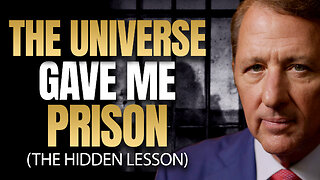Premium Only Content

'The Revenant' (1998) by Michael Punke
Michael Punke’s, 'The Revenant: A Novel of Revenge', is a gripping work of historical fiction that dramatizes the extraordinary ordeal of Hugh Glass, a 19th-century American frontiersman. Set in the harsh landscapes of the early American West, the novel blends survival narrative, historical detail, and psychological intensity to craft a powerful meditation on endurance, vengeance, and humanity’s fragile relationship with nature.
At its core, the story recounts Glass’s near-fatal encounter with a grizzly bear while working with a fur-trapping expedition along the Missouri River. Mauled almost to death, Glass is abandoned by fellow expedition members—most notably John Fitzgerald and the young Jim Bridger—who were tasked with caring for him. Left without weapons or supplies, Glass summons an extraordinary will to survive, crawling, limping, and enduring unimaginable hardships in his quest not only for life but also for revenge against those who betrayed him.
Punke’s narrative is both visceral and evocative. His descriptions of the frontier capture its raw brutality—savage weather, unforgiving terrain, and the omnipresent threat of violence from both nature and humans. Yet amid this harshness, there is also a deep reverence for the wilderness, suggesting that while nature is merciless, it is also majestic. Glass’s suffering is portrayed in painstaking detail, immersing readers in the physical and psychological costs of survival.
One of the novel’s most compelling aspects is its meditation on revenge. While the title itself emphasizes vengeance, Punke complicates this theme. Glass’s burning desire to confront Fitzgerald fuels his survival, but as the narrative unfolds, questions arise: is revenge worth the price of one’s humanity? Can hatred sustain a man indefinitely, or must something more—hope, resilience, perhaps even forgiveness—be the ultimate source of endurance? Punke avoids easy answers, making the novel richer and more thought-provoking than a simple tale of retribution.
Stylistically, 'The Revenant' straddles the line between history and fiction. Punke bases his novel on true events, though he takes liberties with details, especially in dialogue and structure. Unlike purely historical accounts such as Frederick Manfred’s Lord Grizzly (1954), Punke crafts a more cinematic and emotionally charged narrative. His sparse yet vivid prose reflects the starkness of the frontier itself—stripped of embellishment but full of raw intensity.
In evaluating the novel, it is clear that 'The Revenant' succeeds on multiple levels. As a survival story, it is thrilling and unrelenting, plunging readers into one man’s battle against impossible odds. As historical fiction, it offers a compelling glimpse into the fur trade era and the brutal realities of early American expansion. And as a moral exploration, it raises profound questions about the cost of revenge, the resilience of the human spirit, and the thin line between savagery and civilization.
Ultimately, 'The Revenant' stands as both a tribute to Hugh Glass’s legendary ordeal and a broader reflection on human endurance. Punke has crafted a novel that is not only a gripping survival narrative but also a meditation on the primal forces that drive us to live, fight, and sometimes forgive. Its enduring relevance was reaffirmed when it inspired Alejandro González Iñárritu’s acclaimed 2015 film adaptation, though the book itself offers a more meditative and historically grounded experience.
-
 1:14:37
1:14:37
Flyover Conservatives
1 day agoHow to Win 2026 Before It Starts — Clay Clark’s Goal-Setting Blueprint | FOC Show
43.9K1 -
 12:52
12:52
The Kevin Trudeau Show Limitless
2 days agoBeyond Good And Bad: The Hidden Reality Code
90.4K21 -
 1:03:11
1:03:11
BonginoReport
12 hours agoBrown U Security Failures EXPOSED - Nightly Scroll w/ Hayley Caronia (Ep.201)
164K49 -
 51:09
51:09
Patriots With Grit
8 hours agoWill A.I. Replace Doctors? | Dr. Stella Immanuel MD
29.4K4 -
 4:10:32
4:10:32
Nerdrotic
14 hours ago $17.05 earnedHollywood's DOOMSDAY! WB FIRESALE! - Friday Night Tights 385 w Zachary Levi
88.2K22 -
 12:25:53
12:25:53
LFA TV
1 day agoLIVE & BREAKING NEWS! | FRIDAY 12/19/25
207K31 -
 1:08:59
1:08:59
Edge of Wonder
11 hours agoNASA’s Intergalactic Spacecraft, Real Dwarves Spotted & Research Roundup
31K7 -
 1:21:27
1:21:27
Kim Iversen
13 hours agoPutin Says Russia is Ready for WAR With Europe
50.6K104 -
 1:24:41
1:24:41
The Daily Signal
12 hours ago $7.87 earned🚨BOMBSHELL: 315,000+ Illegal Ballots in Georgia, Terrorists Released, Rubio Slashes Foreign Aid
37.7K13 -
 1:53:45
1:53:45
The Mike Schwartz Show
14 hours agoTHE MIKE SCHWARTZ SHOW Evening Edition 12-19-2025
26.3K4